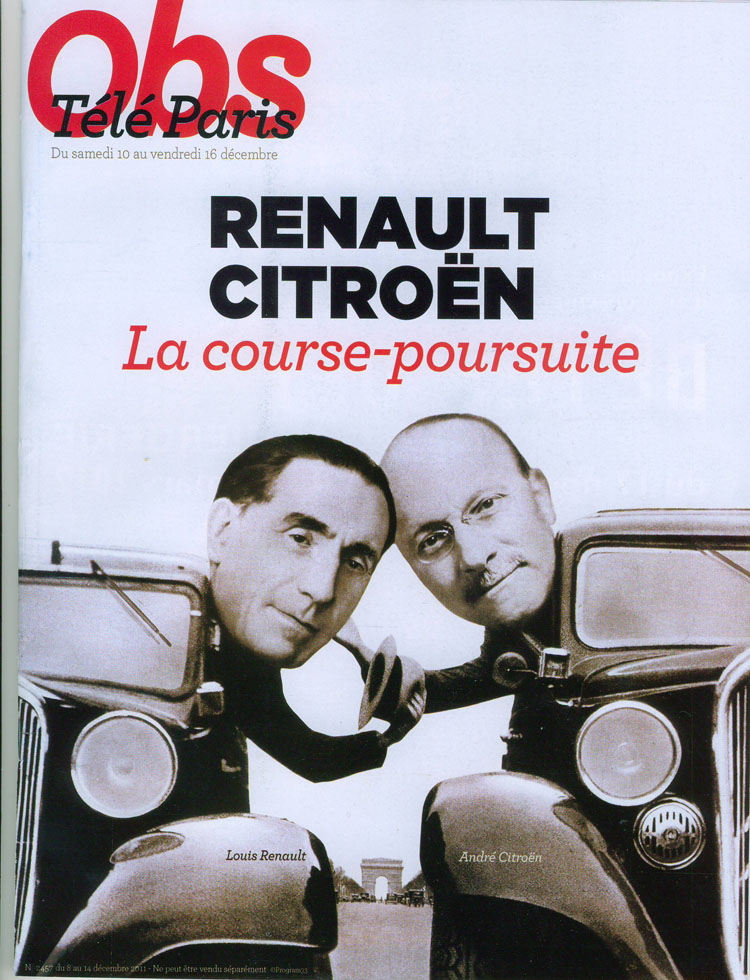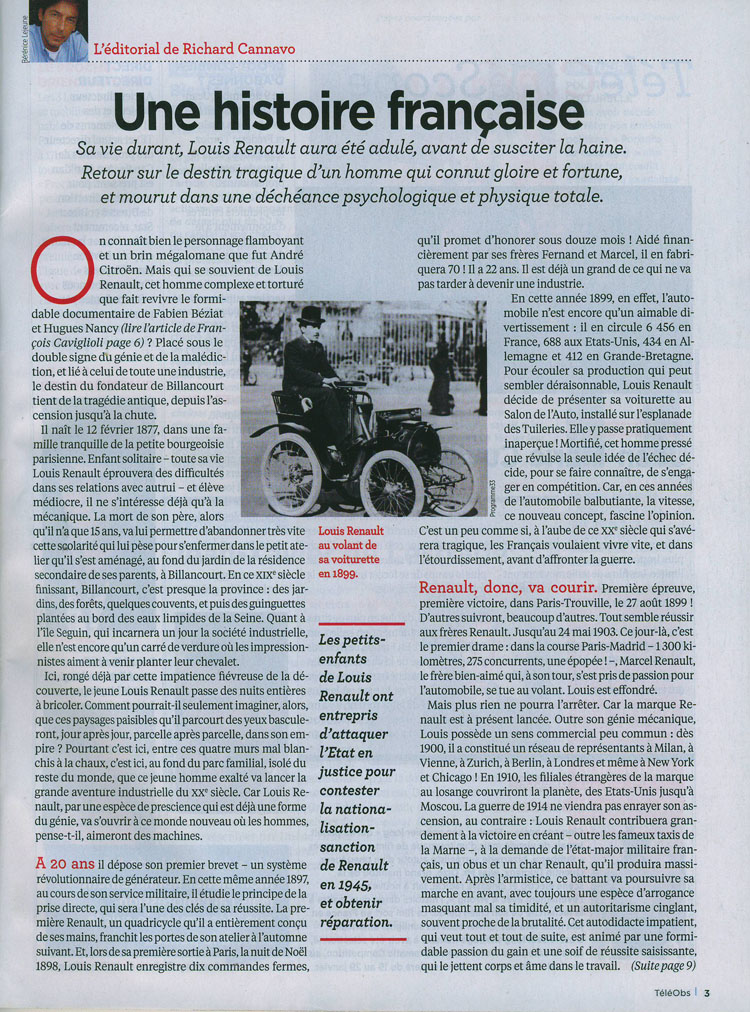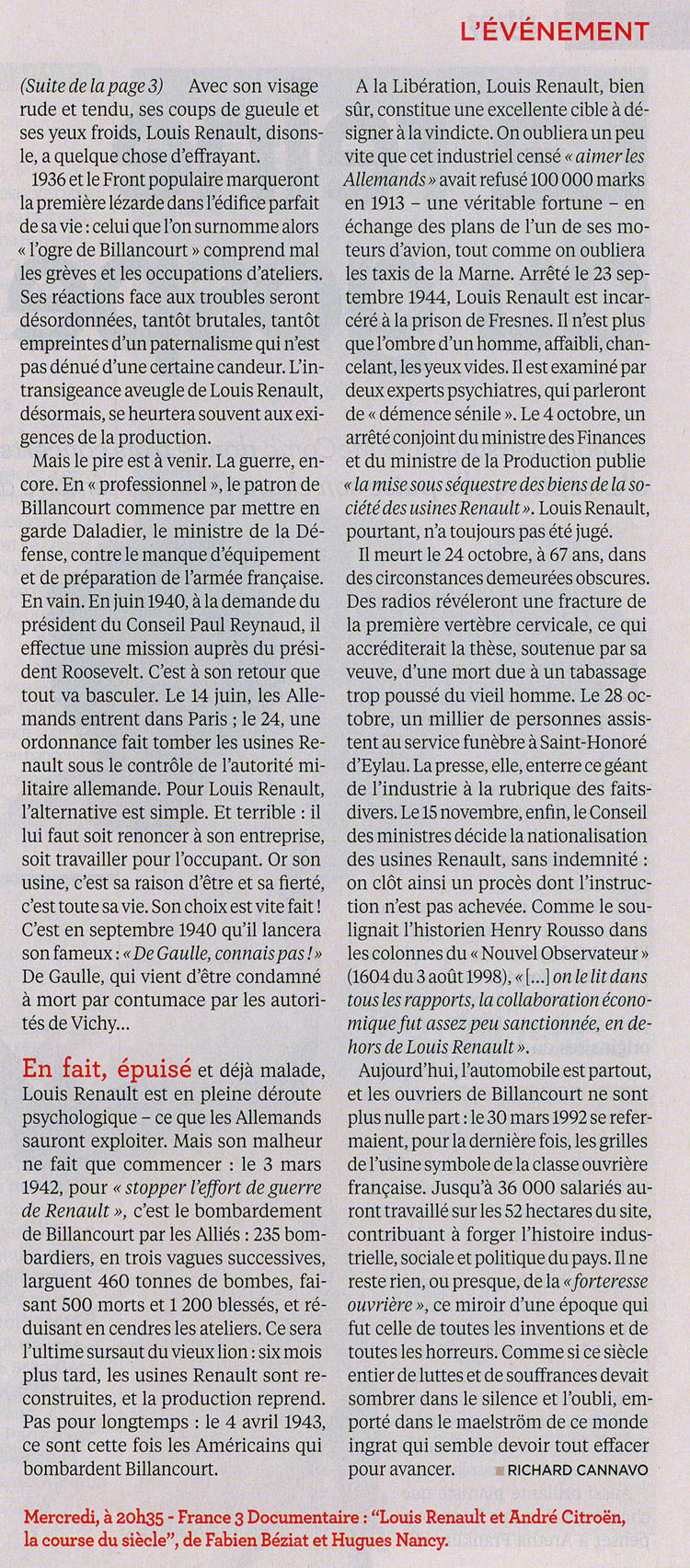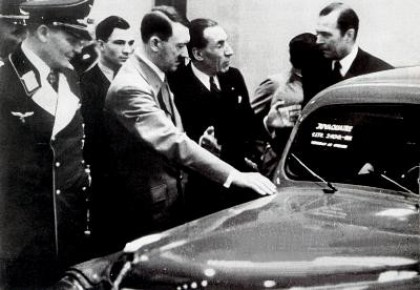 Renault founder’s granddaughter leads legal fight to clear name
Renault founder’s granddaughter leads legal fight to clear name
The granddaughter of Louis Renault, founder of France’s largest car maker, is leading a legal fight to clear his name and counter accusations he was a Nazi collaborator.
The granddaughter of Louis Renault, founder of France’s largest car maker, is leading a legal fight to clear his name and counter accusations he was a Nazi collaborator.
‘I want the truth to finally be told about my grandfather: that he was totally unjustly accused of collaboration with Nazi Germany and that he was a scapegoat’
By Henry Samuel, Paris 9:42PM BST 13 May 2011
The fight threatens to reignite a painful debate in France over the extent to which the company co-operated with the Wehrmacht.
Hélène Renault-Dingli, 49, is one of eight grandchildren suing the French state over what they say was the illegal confiscation of the company in November 1944 after claims that it had backed Germany’s Second World War effort.
“I want the truth to finally be told about my grandfather: that he was totally unjustly accused of collaboration with Nazi Germany and that he was a scapegoat,” she told the Daily Telegraph.
Louis Renault, an inventor and racing driver who founded the car company with his two brothers in 1898, died in custody awaiting trial two months after the liberation of France in 1944.
Hailed as a hero in the First World War for building French army tanks, he was accused of collaborating with Hitler, imprisoned and developed aphasia, a psychological disorder that prevented him from speaking.
Officially, the cause of death was urine in the blood, but according to eyewitness and family accounts, the 67-year-old had been beaten and perhaps tortured.
At his death, he owned 96.8 per cent of the group. A month later, Charles de Gaulle, France’s wartime leader, signed a decree confiscating his stake in Renault on behalf of the state.
Today Renault’s market capitalisation is 11.6 billion euros (£10.1 billion).
Mrs Renault-Dingli and her fellow grandchildren claim De Gaulle breached the French constitution on several counts, above all because the State “confiscated the property of a dead man” without compensating the family.
“No other company was subjected to such treatment, not even among those whose leaders were convicted in the courts of collaboration,” said Thierry Lévy, the lawyer representing the grandchildren.
This week he opened a case on their behalf with a Paris court to seek “material and moral” compensation.
He wants an expert to determine how much the family would have earned from Mr Renault’s stake since 1945.
The legal challenge was made possible thanks to a procedure introduced last year allowing individuals to challenge the constitutionality of French legislation.
Mrs Renault-Dingli said financial compensation, if accorded, would doubtless be “very substantial” given the “huge damage caused to the family”, but she insisted her main aim was to restore her grandfather’s reputation.
The family scored a first legal victory last year when a war memorial was ordered to remove a photograph of Mr Renault alongside Adolf Hitler and Hermann Goering at the Berlin Motor Show in 1939.
The grandchildren admit that Renault made about 30,000 lorries for the German army and repaired German tanks during the war, but that it had no choice. When Mr Renault returned from the US to ask for tanks on behalf of France, the Germans had already requisitioned his factory.
He promised to make vehicles for the Wehrmacht in exchange for keeping workers in France, and was heard to remark: “Give them the butter or they’ll take the cows”.
She said that Renault was a high-profile scapegoat needed by De Gaulle’s post-war administration to placate the Communists and demonstrate its political direction and resolve.
Annie Lacroix-Riz, the emeritus professor of history at Paris University, claims that the group funded the extreme Right in France before the war and clearly collaborated.
French carmakers were “entirely mobilised in the service of the German war economy,” she said.
Mrs Renault-Dingli said archives in her possession suggested otherwise.
“Louis Renault was the archetypal boss figure that many in France still love to hate,” she said. “But he never collaborated”.
 Les sept petits-enfants de l’industriel Louis Renault, accusé de collaboration, demandent à la justice de réviser la nationalisation-sanction de 1945, l’une des décisions les plus symboliques de l’après-guerre.
Les sept petits-enfants de l’industriel Louis Renault, accusé de collaboration, demandent à la justice de réviser la nationalisation-sanction de 1945, l’une des décisions les plus symboliques de l’après-guerre.







